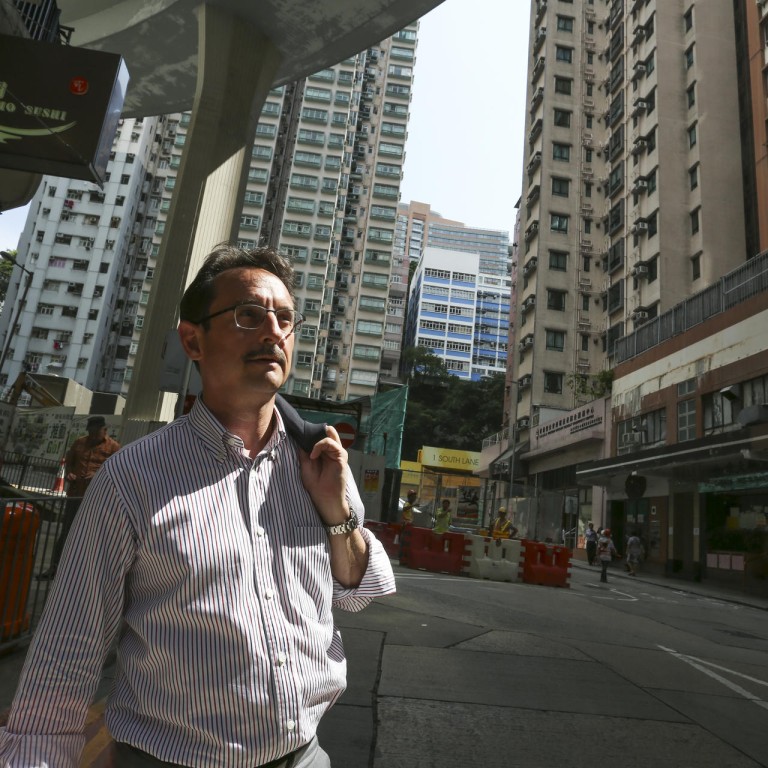
Buying property in international markets turned one man to books
Christopher Dillon's investments started in Hong Kong and made him an author on how to invest
"Put it in bricks and mortar" remains a popular morsel of advice doled out to those looking for secure places to park their money - because such investments are seen as, well, safe as houses.
The degree of truth in that wisdom varies with geography and circumstances: the US housing market collapse of 2007 was the worst in history; the economic catastrophe in Greece has seen property values obliterated.
But there remains enough confidence in property's investment potential to keep the advice coming, not least in much-expanded form in a series of books on how to buy it within and across borders. The series was created by an investor who has personally felt the pain and enjoyed the gain of the bricks and mortar believer.
Hong Kong-based Christopher Dillon, who describes himself as an "entrepreneur and writer", has just published , which is brimful of insider knowledge on the nuts and bolts of purchasing, legal factors, pitfalls, transferring funds, taxes, insurance, surveys and a wealth of other considerations. It follows , and . So what makes him the expert?
Canadian native Dillon, who grew up in Ottawa, lived in Tokyo for three years and has been a Hong Kong resident for 22. In 2002, he bought and renovated a floor of an office building in Central, then "bought in Wong Chuk Hang at a time when nobody wanted anything there", he says. "I bought half a floor of industrial space that had mixed-used zoning and I put in a photo studio and rented it to Sony, De Beers, MTV and the like. Coming to Hong Kong, I didn't even know that as a foreigner you could buy; as my Finnish friend would say, I climbed the tree ass-first."
Dillon's property portfolio soon expanded and his collected experiences gave the series its impetus. "It all started with the Hong Kong book because I had bought commercial, residential and industrial, and got to the end of it after renovating all three and thought, 'There's nothing explaining how to do this, I'll write a book.' The next thing was: where do you write about now?
"Japan, because it was beaten down and I'd lived there and there was nothing available. It seemed like a no-brainer; then six months after the book came out Fukushima happened, which did wonders for sales."
Dillon owns his Pok Fu Lam flat and Tokyo properties, but you'll never find him investing in the equivalent of a Twelve Peaks house. "By temperament I tend to be a value investor," he says. "So I look at places when they're out of favour. I really dislike buying anywhere near the top of the market. And that gives you some insulation from the worst excesses: 'this time it'll be different', 'now prices can only go up'. And I prefer places that aren't glamorous, like working-class Tokyo - which means you have to go 30 minutes to the nearest Starbucks.
"Some investments have done better than others and I've been fortunate; I wish I could chalk it all up to brilliance but some of it is right place, right time."
Dillon's books are geared towards the outsider buying into a given country and the insider already there; he also has a specific reader in mind. "You're 30 or 40-something, you've never bought real estate and you want somewhere to start where somebody's not trying to sell you something. Bonus time is coming; do you want to buy for portfolio diversification or for your own use? 'Do I want an income property in London, a ski chalet in Niseko or beachfront in Thailand? I'd like to explore ideas - where do I start?'
"The point is to be able to look at the big picture and figure out what questions to ask. There wasn't anything addressing that from the perspective of, 'I'm from country X, I live in country Y and maybe I'm going to buy in country Z.' The whole process is predicated on moving product and sometimes - I'm uttering a heresy here - buying is a really bad idea. But real estate agents have no incentive to say, 'You know what, it would be better if you rented.'"
Bricks and mortar have been kind to Dillon. "I've made money at it, definitely," he says. "Hong Kong has been good that way. In some places, if you buy and sell property, you're perceived as a negative social influence - a vulture. Here, it's an accepted way of making money."
Having covered the world, Dillon plans to narrow his focus. "A book on British Columbia will be next, I think. Vancouver is an evergreen city. And I like London - fascinating. I'm just warming up."
